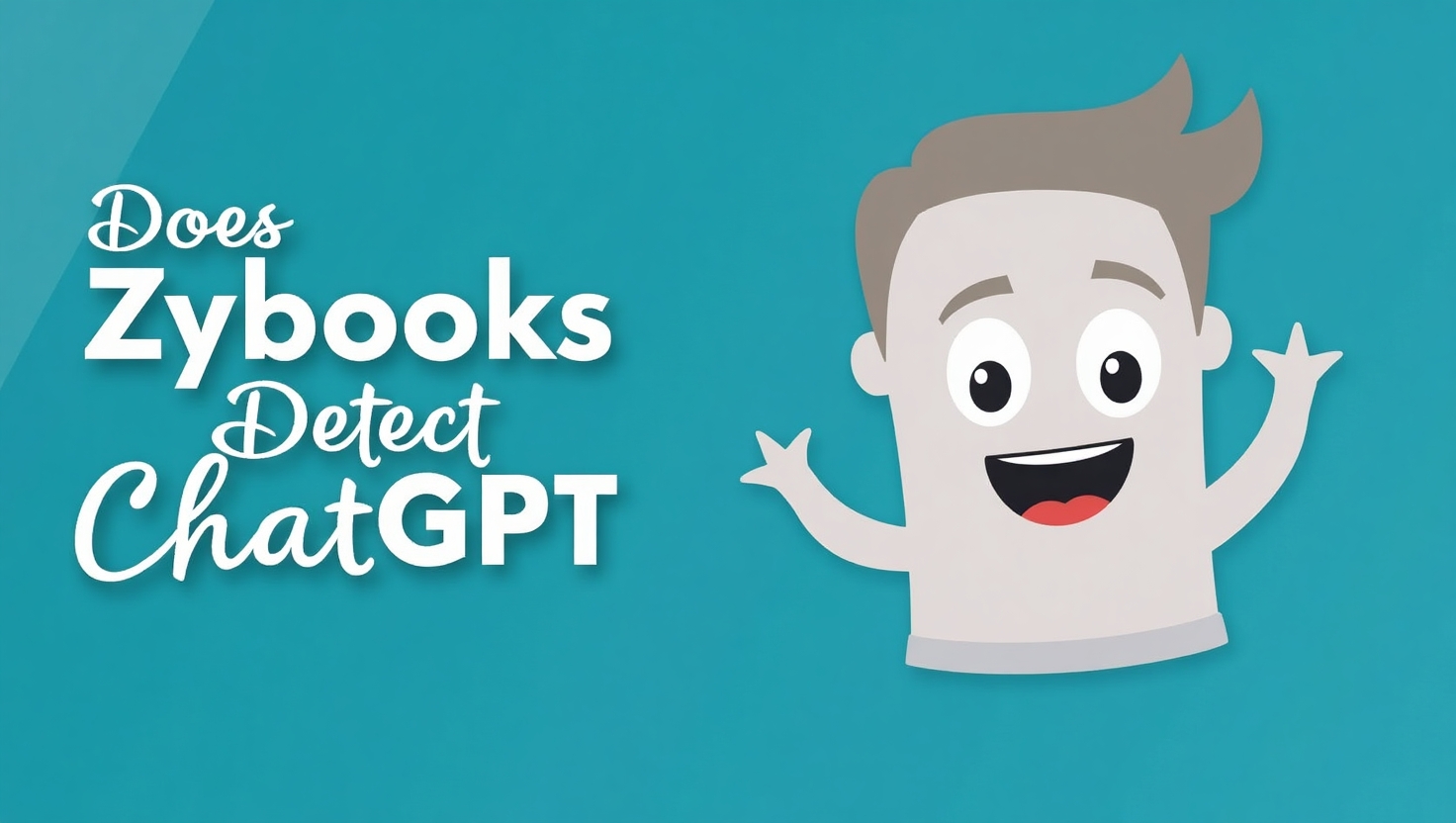Zybooks is a leading online learning platform, widely used in STEM education, offering interactive textbooks and assignments. ChatGPT, created by OpenAI, is an AI language model that generates human-like text and code, raising concerns about its potential misuse in academic settings. As students increasingly turn to AI tools, a key question emerges: can Zybooks detect when students use ChatGPT to complete assignments?
Can Zybooks Detect ChatGPT?
Research suggests Zybooks can detect ChatGPT usage, particularly in programming assignments, through advanced tools designed to maintain academic integrity. While no tool explicitly targets ChatGPT, Zybooks’ systems can identify AI-generated code by analyzing patterns and behaviors. A 2023 study by Zybooks researchers, published on their research page, tested ChatGPT on 10 programming assignments, simulating 20 students. The findings showed that Zybooks’ tools effectively flagged AI-generated submissions.

However, some sources, like a blog post from Semantic Pen, claim Zybooks doesn’t directly detect ChatGPT but uses unique problem generation and coding trails to discourage cheating. Another article from OneClickHuman suggests Zybooks focuses on content delivery rather than AI detection. These conflicting views may reflect outdated information or varying interpretations, but Zybooks’ own documentation, such as their Academic Integrity page, confirms robust detection capabilities.
Tools Zybooks Uses for Detection
Zybooks employs a multi-faceted approach to detect cheating, including potential ChatGPT usage. Below is a table summarizing their key tools:
| Tool | Description |
|---|---|
| APEX Tool | Detects style anomalies in code, such as deviations from taught programming styles, common in AI-generated submissions. |
| Similarity Checker | Uses the MOSS algorithm to identify highly similar code submissions within a class, flagging potential AI use if multiple students submit near-identical code. |
| Student Behavior Insights | Tracks work patterns, such as time spent on assignments, to flag outliers who complete tasks unusually quickly. |
| Code Playback | Allows instructors to review a student’s coding process keystroke by keystroke, revealing copied or pasted code. |
| Internet Monitoring | Removes over 24,000 unauthorized solutions from the web annually, preventing access to AI-generated answers. |
These tools collectively create a robust system for detecting academic dishonesty, including AI-assisted cheating. For instance, the APEX tool identifies code that doesn’t align with course-specific styles, while the Similarity Checker flags submissions that are too similar, a common issue when multiple students use ChatGPT for the same assignment.
How Zybooks Promotes Academic Integrity
Beyond detection, Zybooks fosters an environment that discourages cheating. Its learning design breaks assignments into small, interactive tasks with immediate feedback, encouraging active engagement. This approach, outlined in Zybooks’ guide on preventing cheating, reduces the incentive to use AI tools by making learning more manageable and rewarding. Additionally, Zybooks monitors the internet for unauthorized solutions, submitting thousands of takedown requests yearly to ensure students cannot access pre-written answers.
Tips for Students and Instructors
For Students
- Use AI Ethically: Leverage ChatGPT to clarify concepts or explore examples, but write your own code to ensure learning and avoid detection.
- Understand Consequences: Submitting AI-generated work may be flagged by Zybooks’ tools, potentially leading to academic penalties.
- Focus on Skill Development: Genuine engagement with assignments builds skills critical for future courses and careers.
For Instructors
- Utilize Detection Tools: Regularly use APEX, Similarity Checker, and Code Playback to monitor submissions and identify irregularities.
- Design Unique Assignments: Create tasks that require original thinking, making it harder for AI tools to provide complete solutions.
- Educate on Integrity: Discuss the importance of academic honesty and the risks of using AI tools inappropriately.
Addressing Common Questions
Based on Google’s “People Also Ask” and “Related Searches” sections, users often ask:
- Does Zybooks check for plagiarism? Yes, through tools like the Similarity Checker and Code Playback, Zybooks detects plagiarism and potential AI use.
- Can AI-generated code be detected? Research indicates that tools like APEX can identify AI-generated code by analyzing style and structure.
- How does Zybooks track cheating? By monitoring code submissions, work patterns, and internet activity, Zybooks ensures a fair learning environment.
These questions highlight user concerns about academic integrity and AI tools, which Zybooks addresses through its comprehensive detection methods.
Suggested Visuals
To enhance engagement, consider adding the following images:
- Diagram of Zybooks’ Detection Process: Place near the “Tools Zybooks Uses for Detection” section to visually explain how APEX, Similarity Checker, and other tools work together.
- Screenshot of Code Playback Interface: Include in the “Tools” section to show how instructors review student coding processes.
- Infographic on Academic Integrity Tips: Place in the “Tips for Students and Instructors” section to summarize actionable advice.
These visuals can be created using AI tools like Canva or MidJourney, ensuring they are clear and relevant to the content. Related articles on technewscap.com, such as “How to Use Zybooks Effectively” or “Maintaining Academic Integrity in Online Learning.” Refer to authoritative sources like Forbes’ education articles for broader context on academic integrity or Zybooks’ official site for detailed platform information.
Final Thoughts
AI tools like ChatGPT can be powerful learning aids when used ethically. Students should focus on understanding material, while instructors can leverage Zybooks’ tools to uphold fairness. As AI technology evolves, Zybooks will likely continue refining its detection methods, ensuring a balance between innovation and integrity in education.
